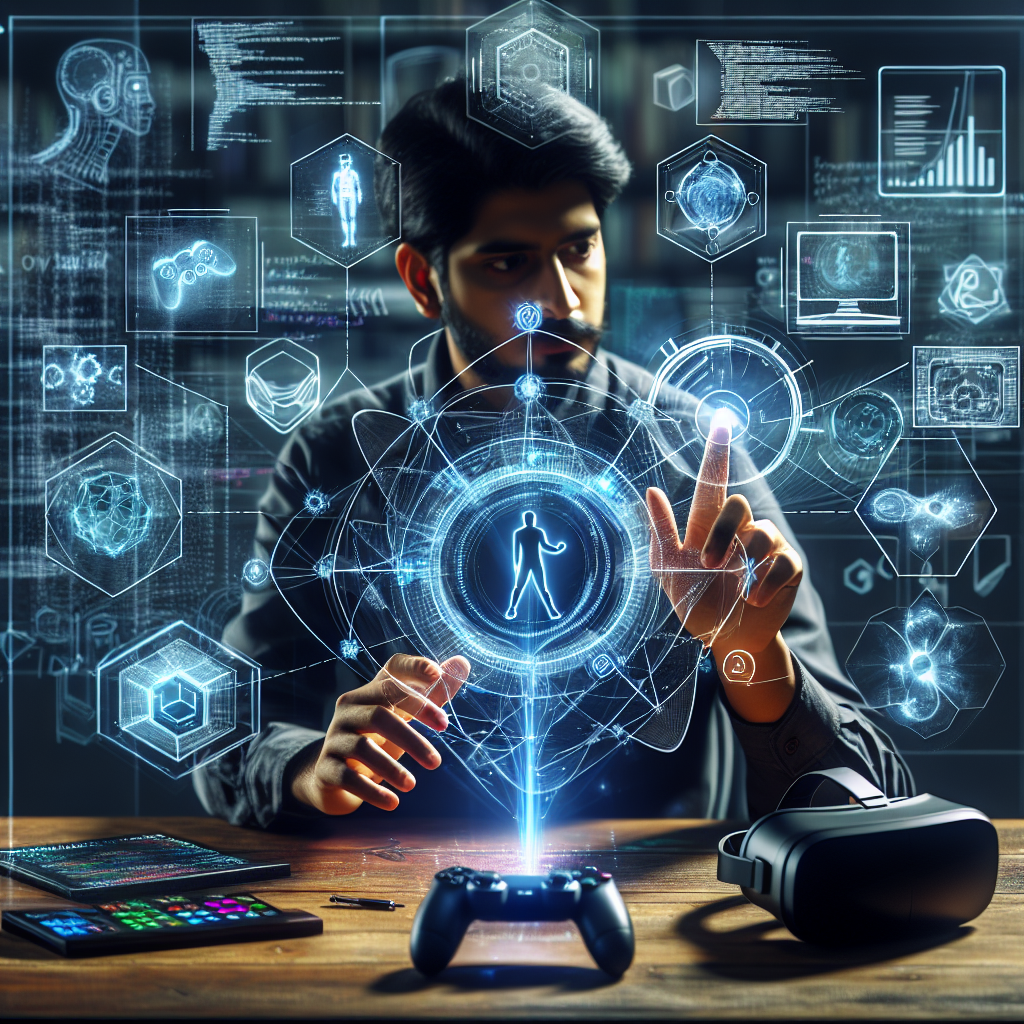In recent years, artificial intelligence (AI) has been transforming various industries, and the gaming industry is no exception. AI technology has significantly impacted game development workflows, leading to more efficient processes and innovative gameplay experiences. From generating realistic graphics to enhancing player engagement, AI is revolutionizing the way games are created and played.
One of the key ways AI is transforming game development workflows is through procedural content generation. This technique involves using algorithms to automatically create game content, such as levels, characters, and environments. By leveraging AI, developers can save time and resources by generating vast amounts of content quickly and efficiently. This allows for more diverse and dynamic gameplay experiences, as well as endless possibilities for players to explore.
AI-powered procedural content generation can also help developers create more personalized experiences for players. By analyzing player data and behavior, AI algorithms can generate content that is tailored to individual preferences and skill levels. This can lead to more engaging and immersive gameplay experiences, as players feel more connected to the game world and their in-game decisions have a greater impact on the overall experience.
Another way AI is transforming game development workflows is through machine learning. Machine learning algorithms can analyze vast amounts of data to identify patterns and trends, which can be used to improve game design, balance, and player engagement. For example, machine learning algorithms can analyze player behavior to predict player preferences and adjust game mechanics accordingly. This can lead to more satisfying gameplay experiences for players, as the game adapts to their individual preferences and playstyles.
AI is also being used to enhance the graphics and visuals of games. AI-powered algorithms can generate realistic textures, lighting effects, and animations, leading to more immersive and visually stunning game worlds. By using AI to automate the creation of high-quality graphics, developers can focus on other aspects of game development, such as gameplay mechanics and storytelling. This can lead to faster development cycles and higher-quality games that push the boundaries of what is possible in terms of visual fidelity.
Furthermore, AI is being used to improve game testing and quality assurance processes. AI-powered algorithms can automatically detect bugs, glitches, and performance issues in games, allowing developers to identify and fix problems more quickly and efficiently. This can lead to more stable and polished games that provide a seamless experience for players. AI can also be used to generate automated test cases and scenarios, reducing the need for manual testing and speeding up the development process.
Overall, AI is transforming game development workflows by automating repetitive tasks, improving game design and balance, enhancing player engagement, and pushing the boundaries of what is possible in terms of graphics and visuals. As AI technology continues to evolve, we can expect to see even more innovations in game development workflows that will revolutionize the gaming industry.
FAQs:
Q: How is AI being used in game development?
A: AI is being used in game development in various ways, including procedural content generation, machine learning, graphics enhancement, and quality assurance processes. AI technology is being leveraged to automate repetitive tasks, improve game design and balance, enhance player engagement, and push the boundaries of visual fidelity in games.
Q: What are the benefits of using AI in game development workflows?
A: The benefits of using AI in game development workflows include increased efficiency, faster development cycles, improved game design and balance, enhanced player engagement, and higher-quality visuals. AI technology can help developers create more diverse and dynamic gameplay experiences, personalize content for players, and automate testing and quality assurance processes.
Q: How is AI changing the gaming industry?
A: AI is changing the gaming industry by revolutionizing game development workflows, leading to more efficient processes and innovative gameplay experiences. AI technology is enabling developers to create more personalized and immersive games, automate repetitive tasks, and push the boundaries of what is possible in terms of graphics and visuals.
Q: What are some examples of AI-powered games?
A: Some examples of AI-powered games include “The Last of Us Part II,” which uses AI algorithms to enhance the game’s visuals and animations, and “No Man’s Sky,” which uses procedural content generation to create an infinite universe for players to explore. AI technology is being used in a wide range of games to improve gameplay experiences and push the boundaries of what is possible in game development.

